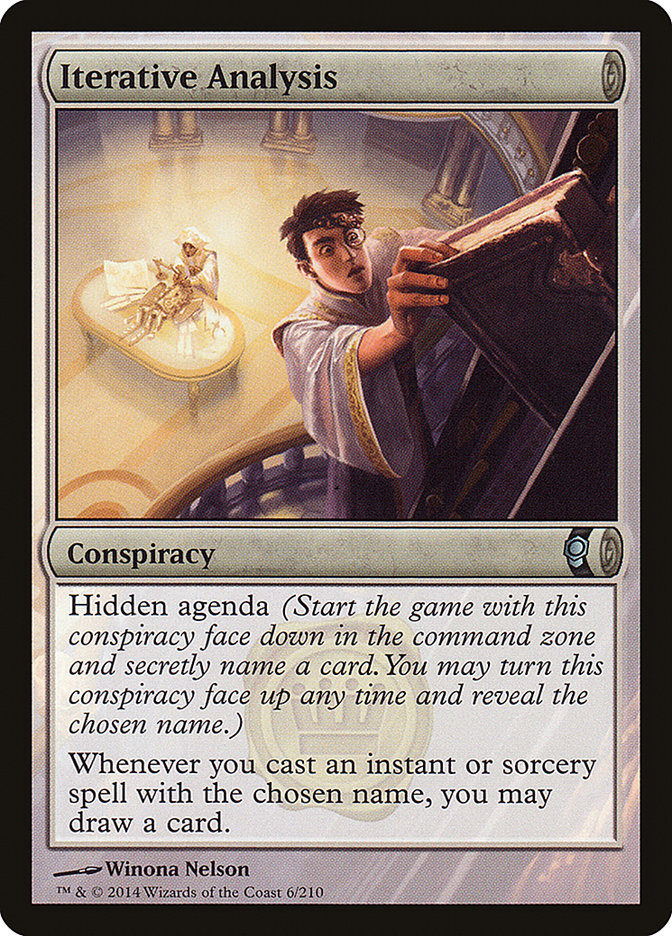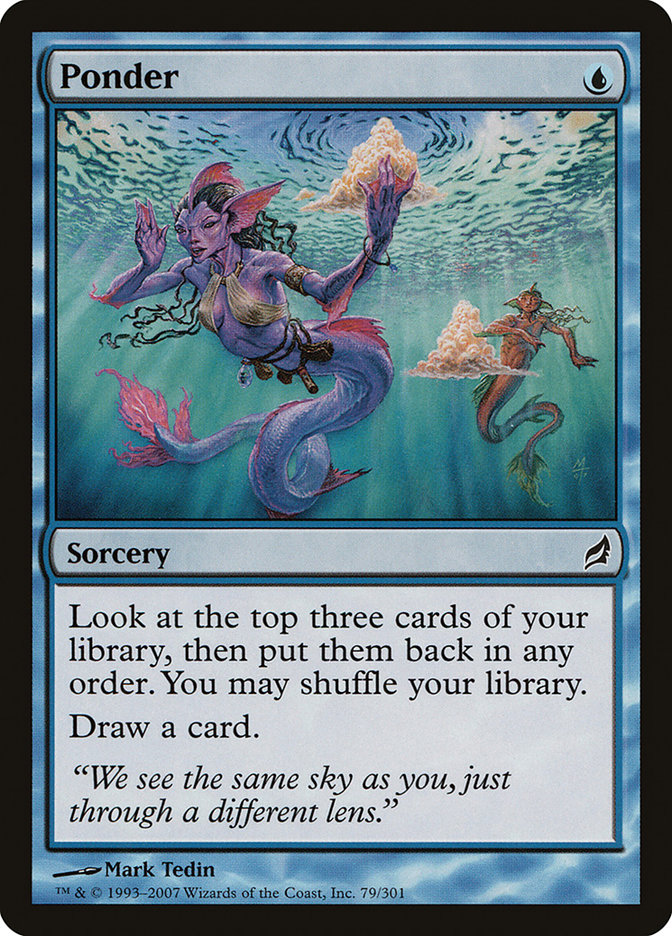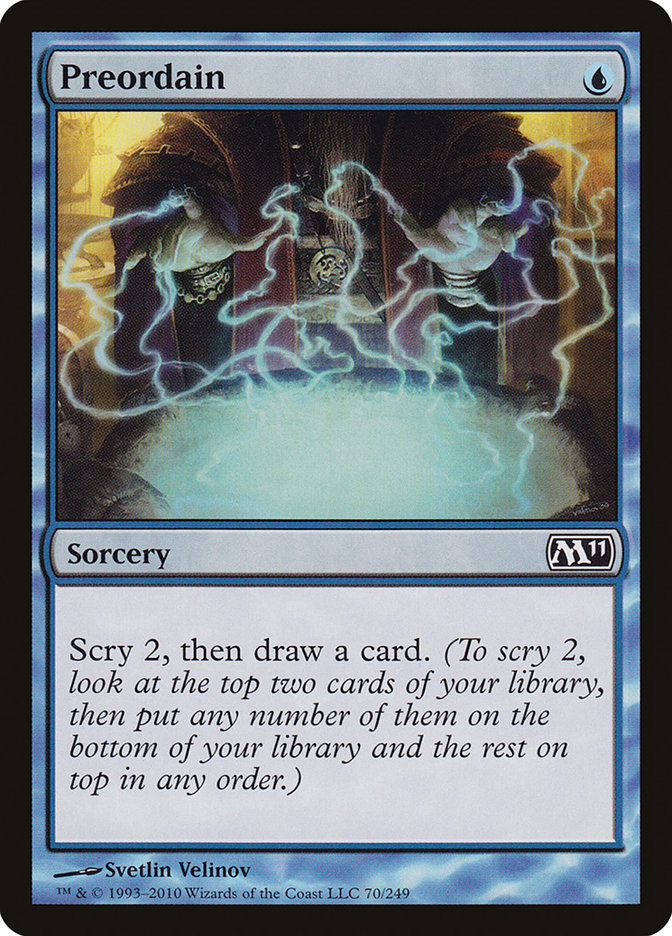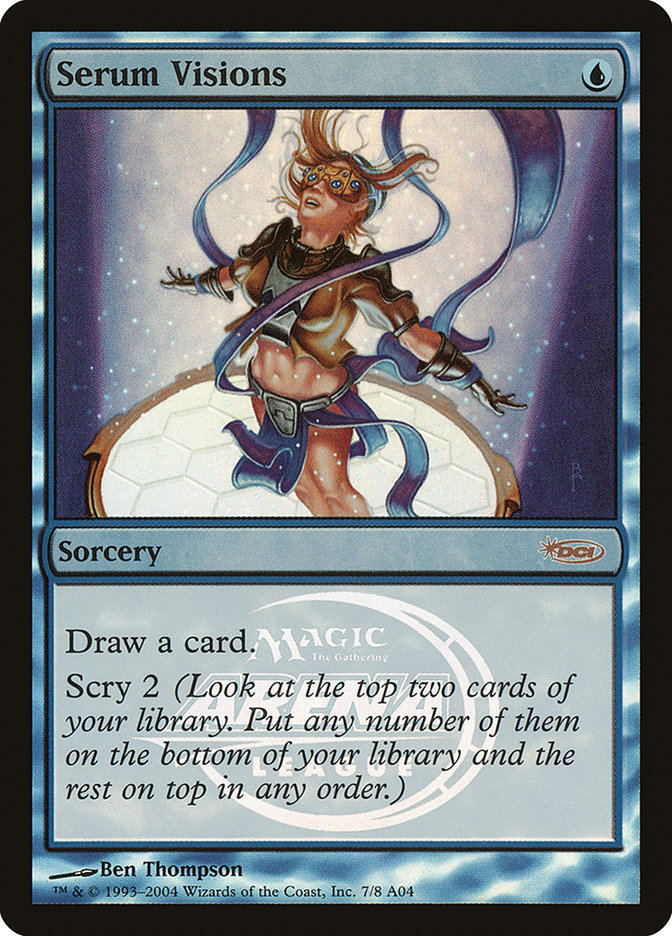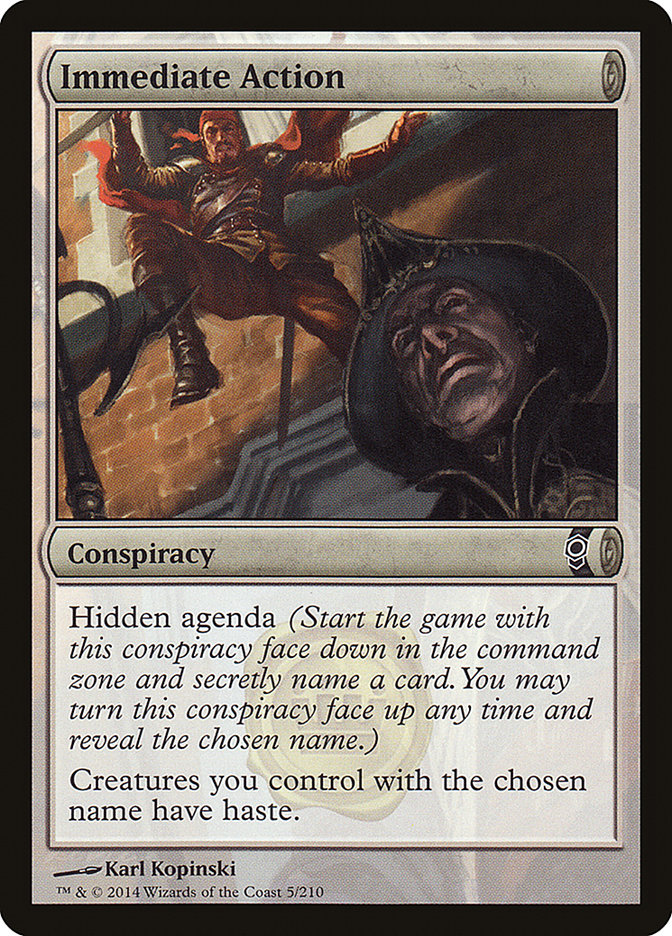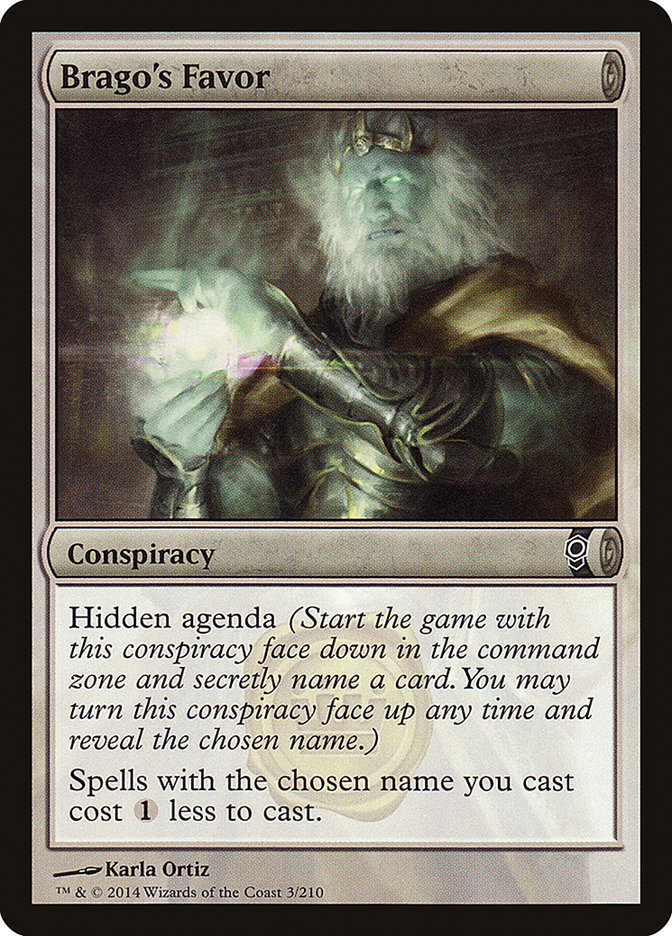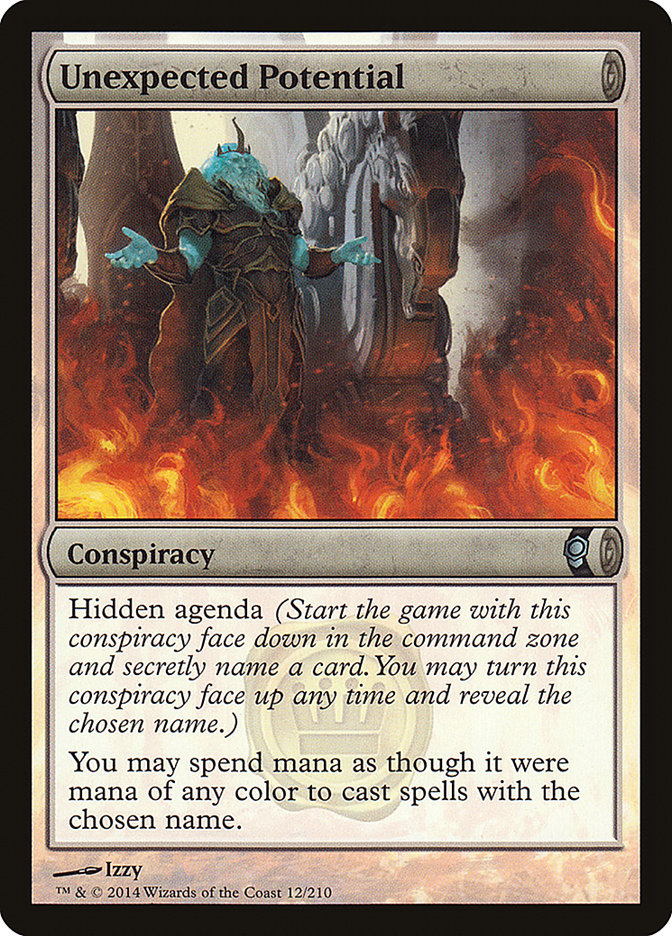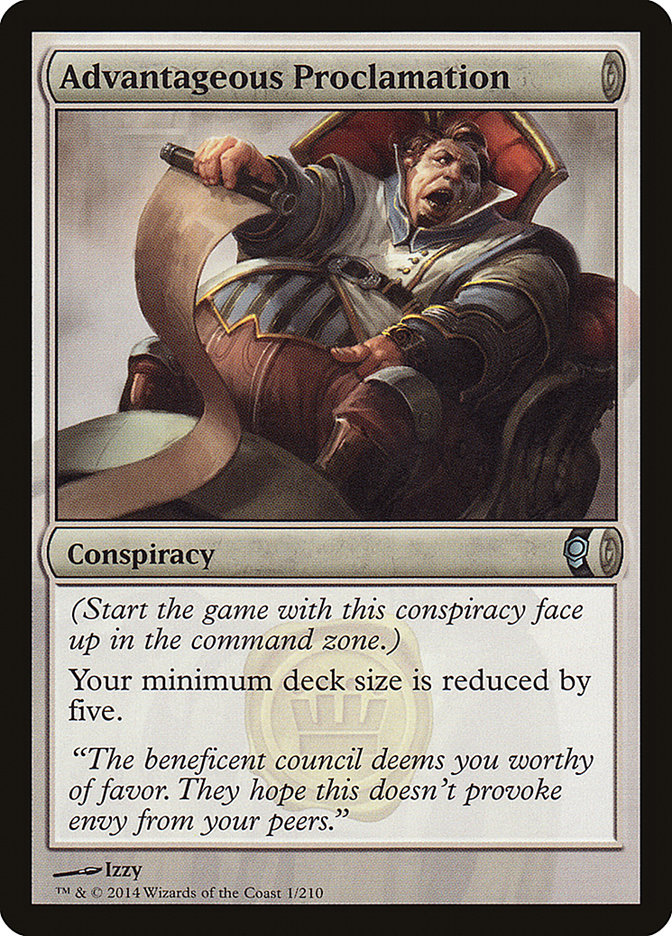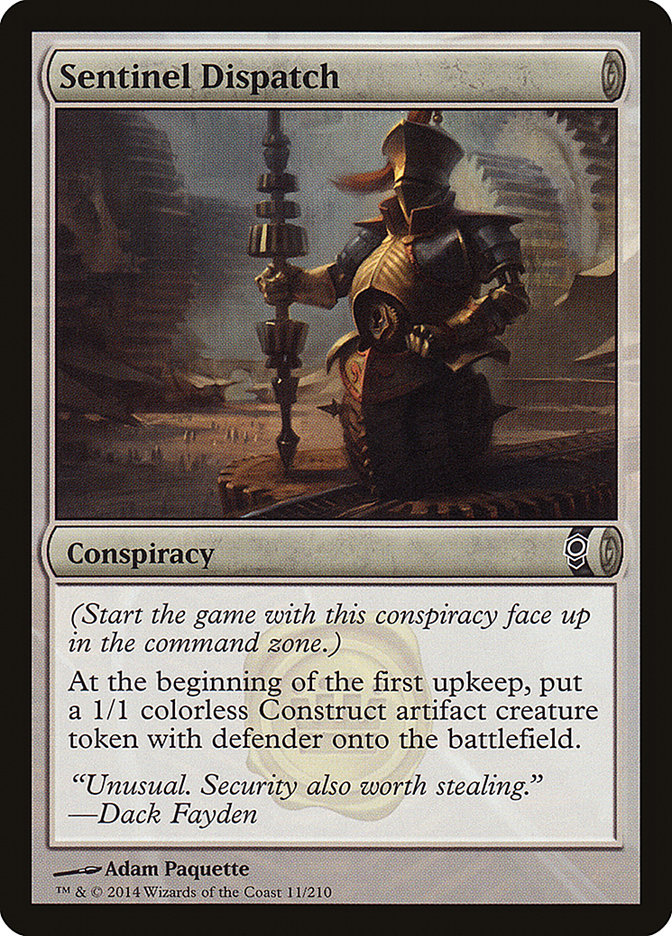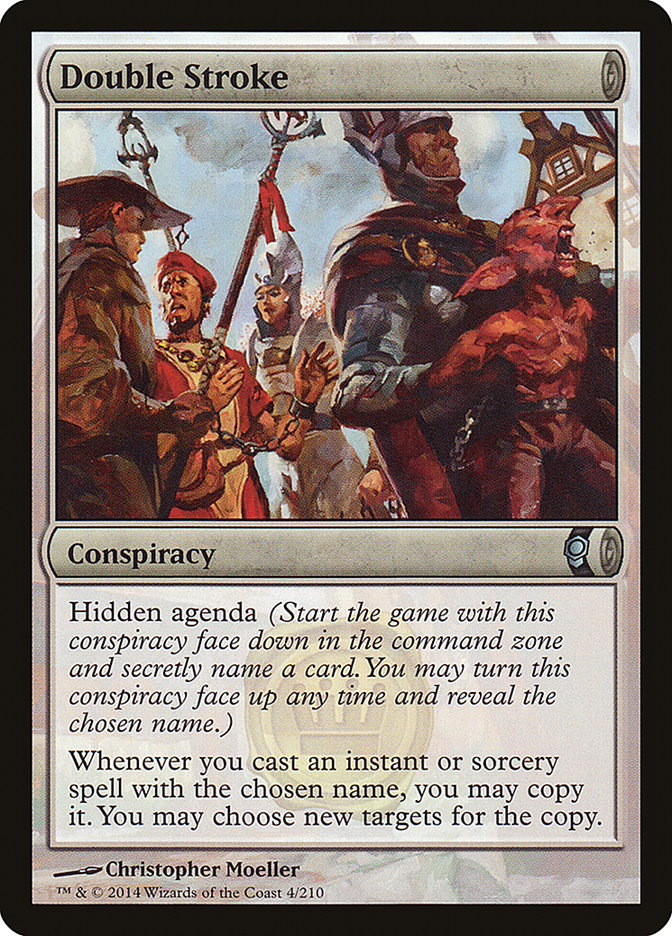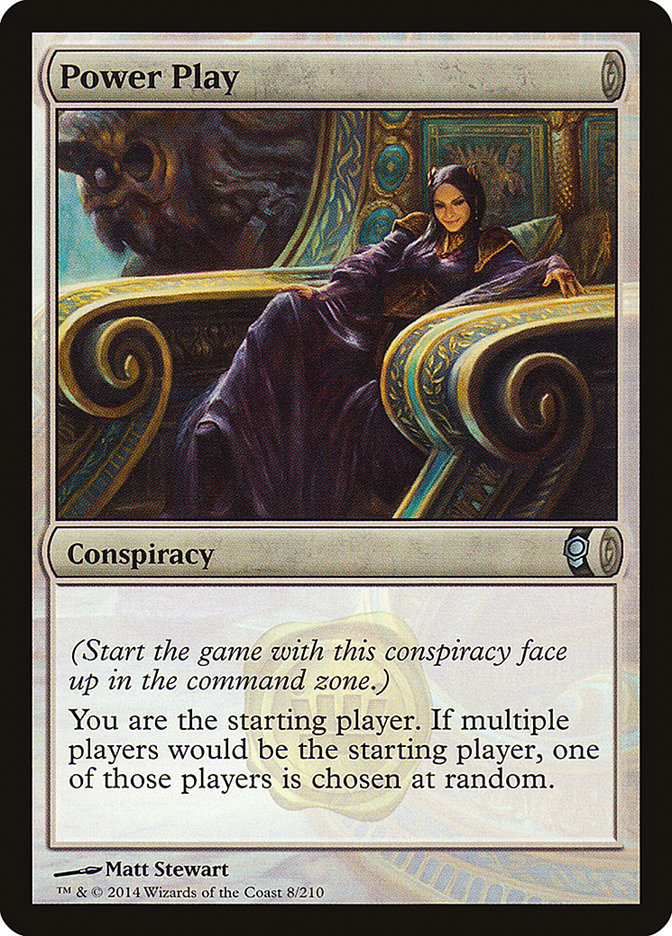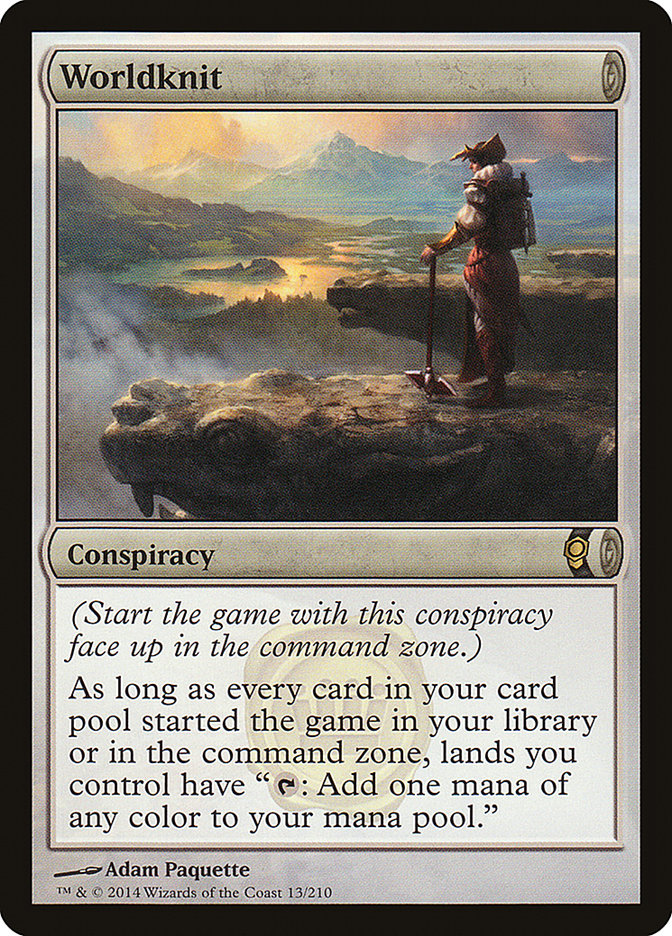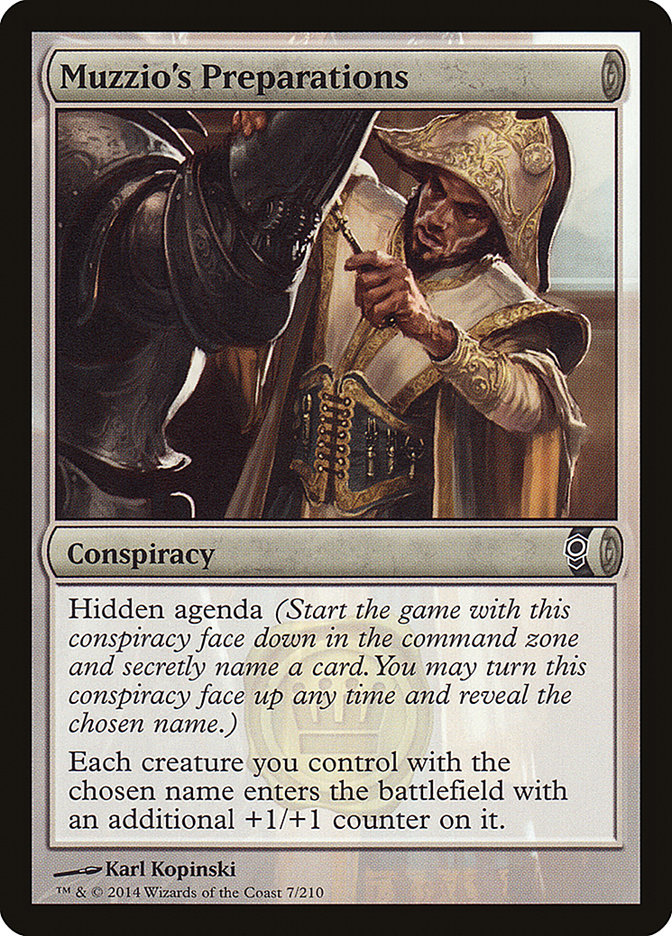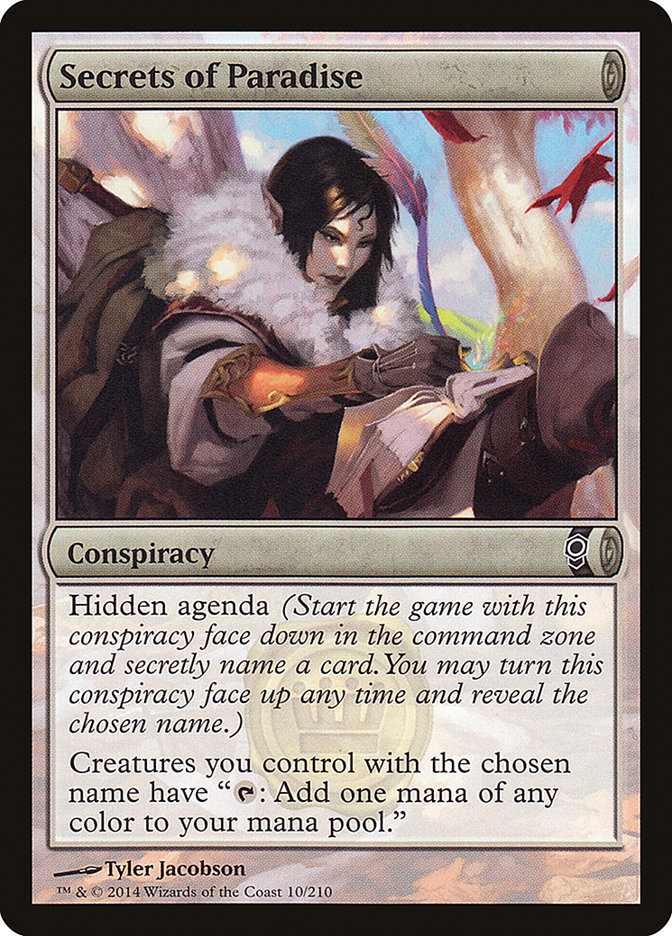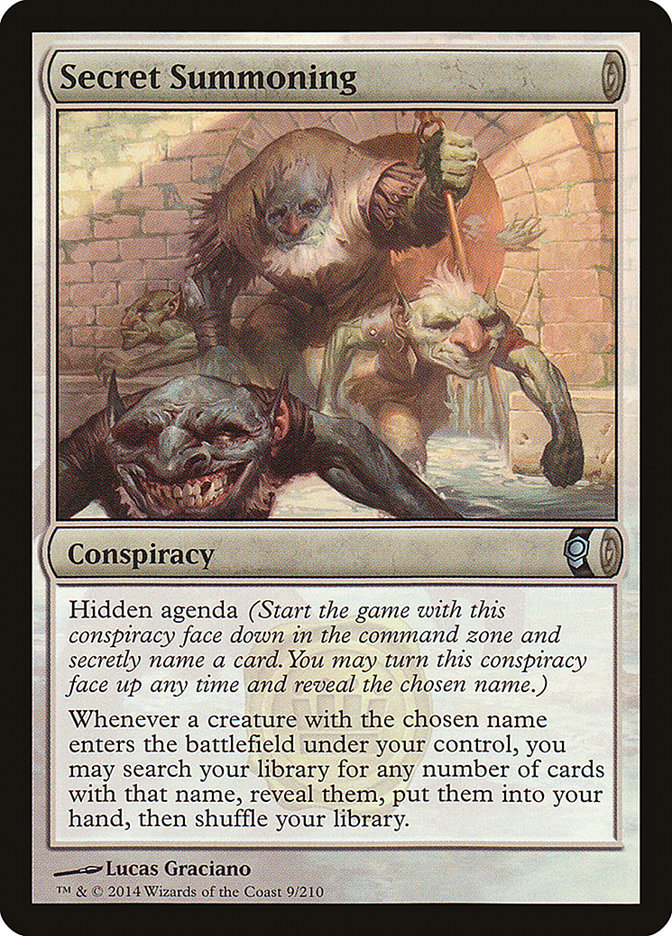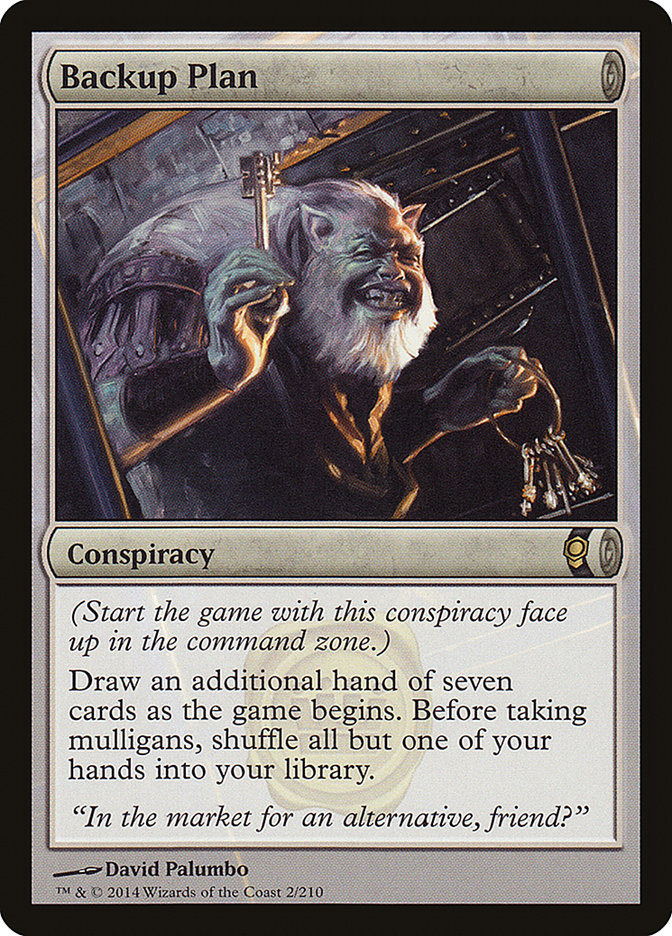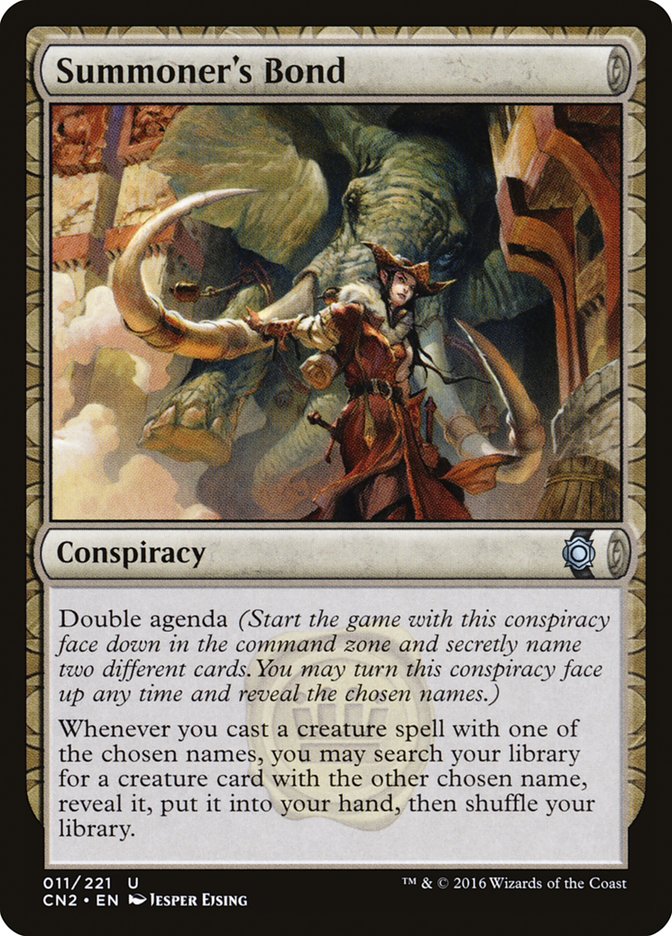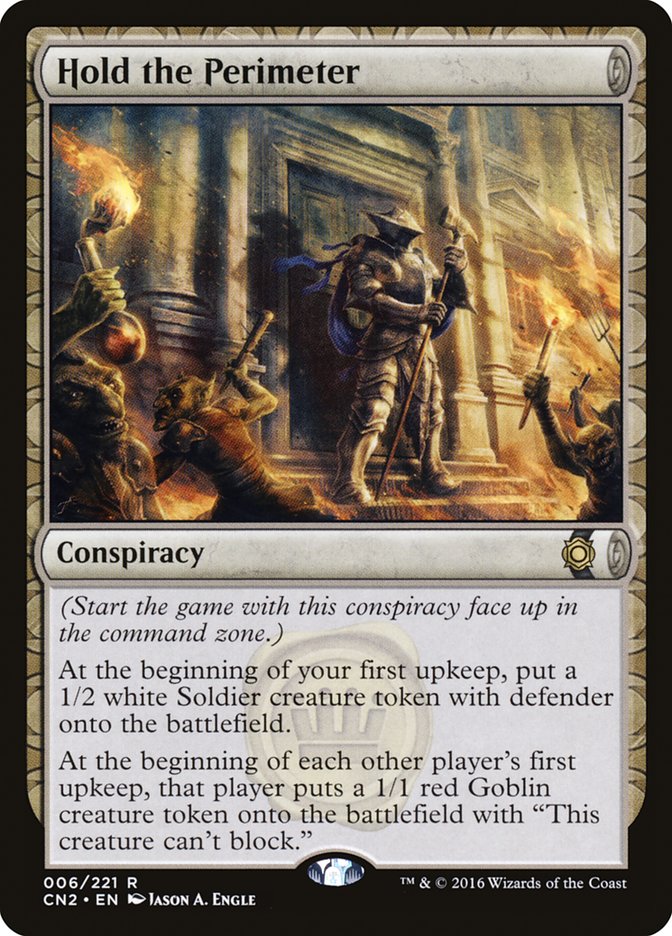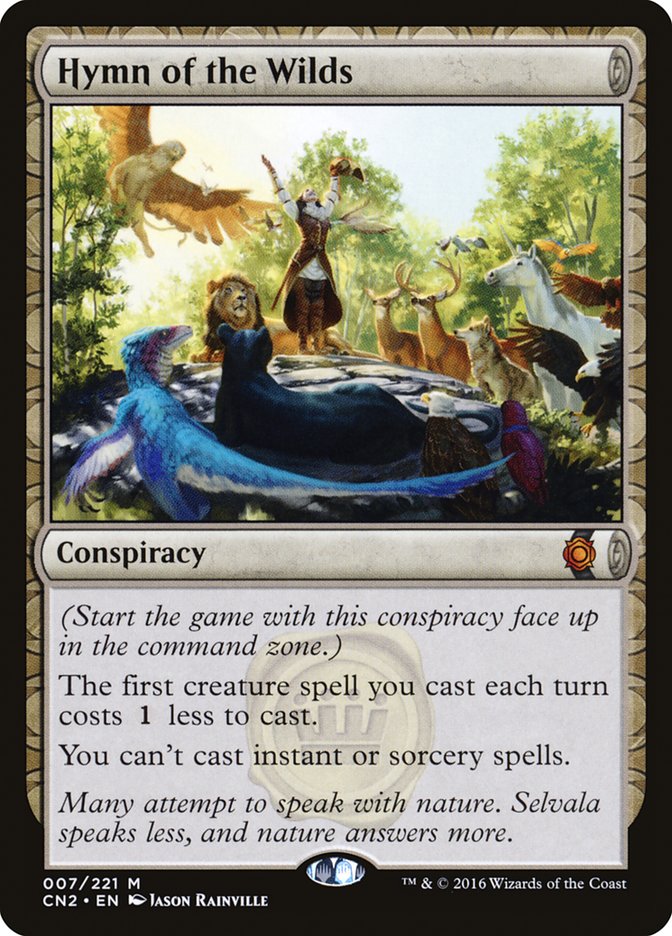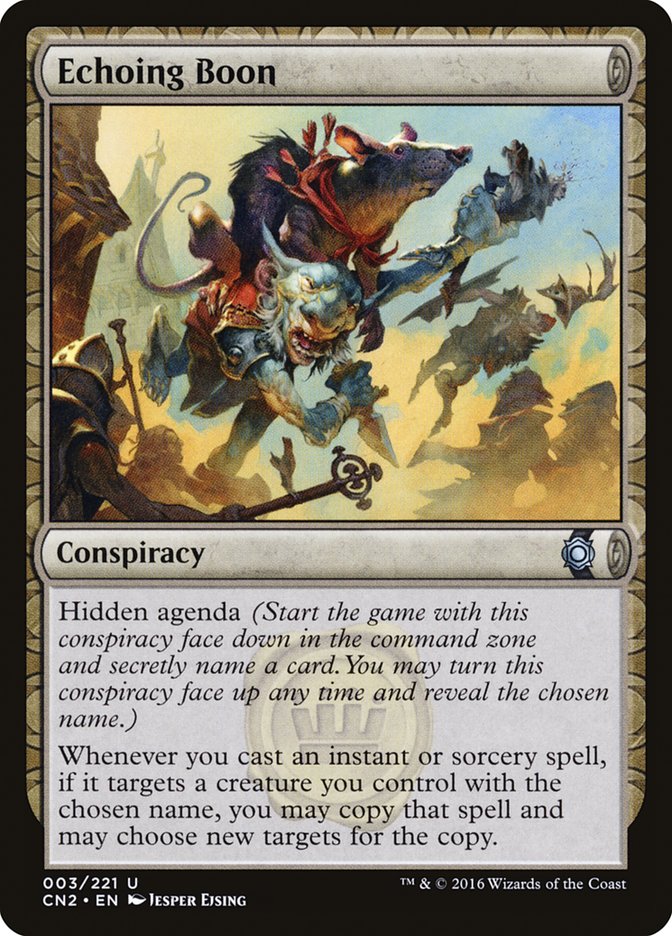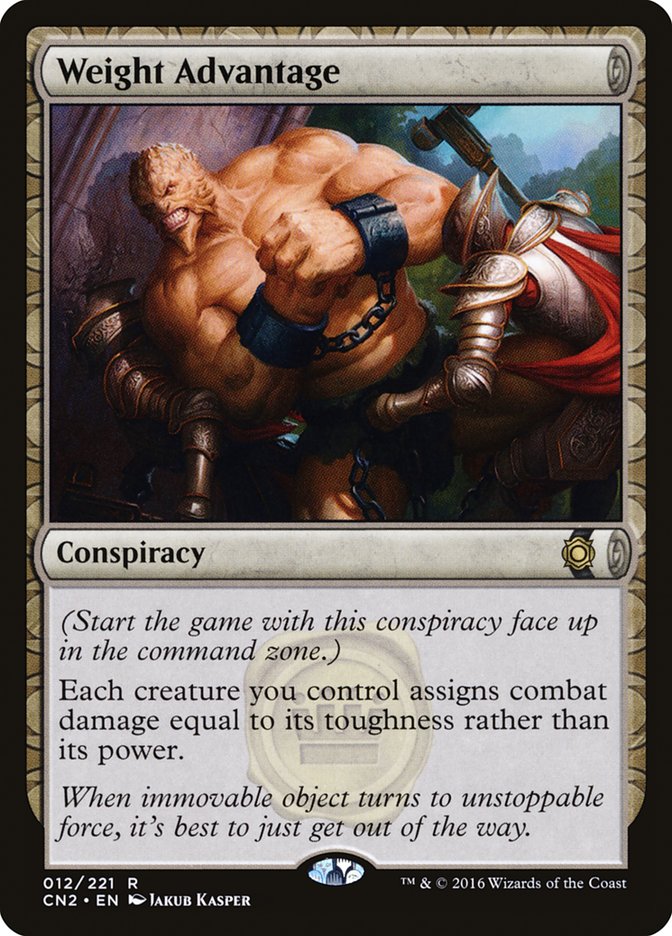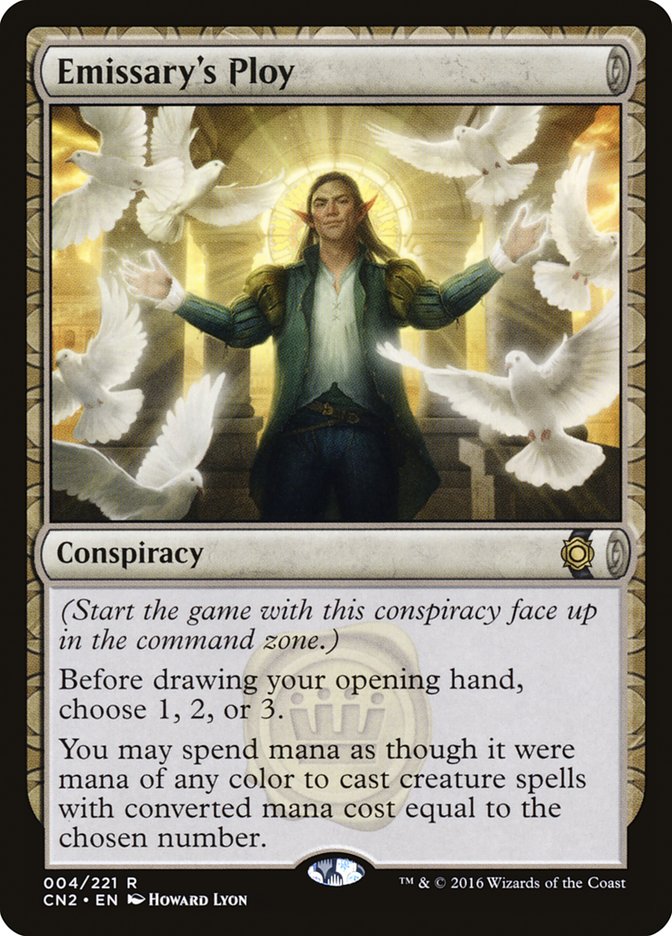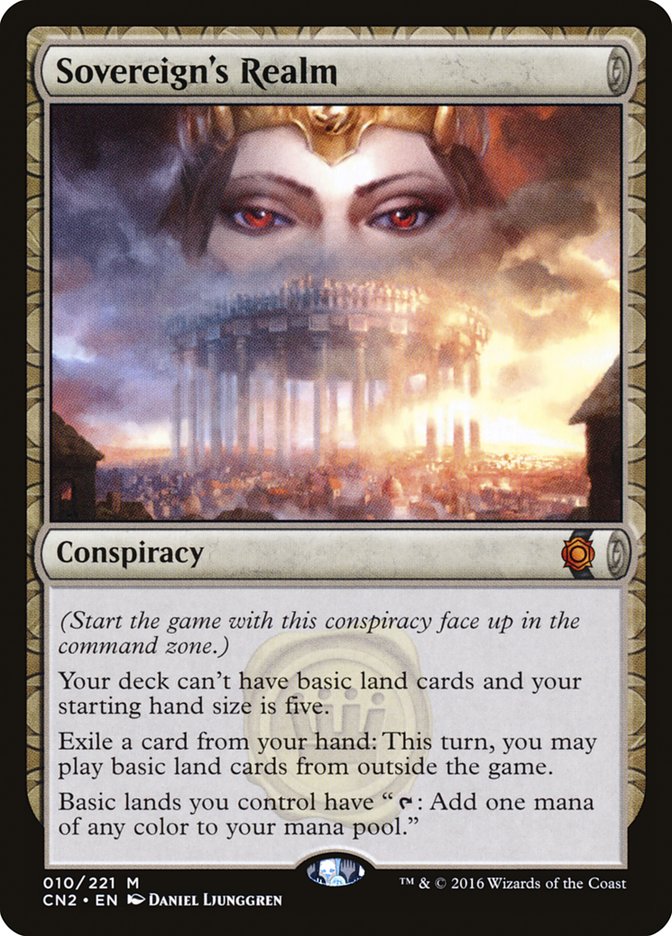Iterative Analysis MTG Card
| Card sets | Released in 2 setsSee all |
| Rarity | Uncommon |
| Type | Conspiracy |
| Abilities | Hidden agenda |
Text of card
Hidden agenda (Start the game with this conspiracy face down in the command zone and secretly name a card. You may turn this conspiracy face up any time and reveal the chosen name.) Whenever you cast an instant or sorcery spell with the chosen name, you may draw a card.
Cards like Iterative Analysis
Iterative Analysis adds a nuanced twist to the repertoire of card advantage options available in MTG. The card bears similarity to Ponder, another powerhouse in the realm of deck manipulation. Both cards excel at setting up future draws but Iterative Analysis has the unique feature of grafting its ability onto another instant or sorcery, effectively turning it into a cantrip that can be used repeatedly whenever the copied spell is cast.
Similar yet distinct, Preordain allows players to look at the top cards of their library and manipulate them, but without the attached repeatability that Iterative Analysis offers. Serum Visions is in the mix as well for those seeking to draw a card while sorting out their next moves—though again, it lacks the ongoing benefit that Iterative Analysis can bring to a player’s strategic toolbox. While other cards provide immediate effects, Iterative Analysis promises sustained value over time, potentially reshaping the game each time the encoded spell is triggered.
In essence, when comparing utility and strategic depth, Iterative Analysis occupies a unique position. It grants not just a one-time glimpse into the future, like its counterparts, but introduces a lasting advantage that rewards players for casting their favorite spells multiple times throughout the match.
Cards similar to Iterative Analysis by color, type and mana cost
Card Pros
Card Advantage: Iterative Analysis gives players the ability to potentially draw multiple cards throughout the game. This continuous replenishment of your hand ensures that you’ll rarely be lacking options, keeping you ahead in resources against your opponent.
Resource Acceleration: While not directly creating resources, the additional cards drawn through Iterative Analysis can lead to drawing into more land or mana-producing spells, indirectly accelerating your resource development and allowing you to play more impactful spells sooner.
Instant Speed: The power of instant speed spells lies in their flexibility, and Iterative Analysis is no exception. Being able to cast it at any time provides the player with the element of surprise and the ability to react to an opponent’s moves, whether it’s end-of-turn or in response to an action, making it a versatile tool in any strategist’s arsenal.
Card Cons
Discard Requirement: Iterative Analysis comes with a precondition; a card must be discarded to gain its benefit. This particular aspect can pose a challenge, especially when your hand is already running thin. It forces you to make tough decisions about what to keep and what to let go, which can be detrimental in the long run if not managed wisely.
Specific Mana Cost: The mana required for Iterative Analysis is not just any mana, but it demands a certain type (for instance, blue). This specificity can become an obstacle for decks that operate on a more diverse color scheme or those that cannot consistently produce the necessary mana.
Comparatively High Mana Cost: The casting cost of Iterative Analysis is on the higher end when measured against other options available that achieve similar outcomes. For decks looking to maximize efficiency and speed, the mana investment for Iterative Analysis might outweigh its benefits, potentially slowing down the tempo and making it a less favorable inclusion.
Reasons to Include in Your Collection
Versatility: Iterative Analysis offers flexibility as it can be slotted into various deck archetypes that want to capitalize on spell copying or cast triggers.
Combo Potential: The enchantment’s ability to copy instant or sorcery spells makes it a powerhouse in potential combo setups, turning single spells into multiple effects for game-changing plays.
Meta-Relevance: In a metagame where control and combo decks are prevalent, Iterative Analysis shines by providing additional value for each copied spell, cementing its relevance in competitive play.
How to Beat Iterative Analysis
Iterative Analysis presents an intriguing twist in the realm of MTG card mechanics. Detached from the more straightforward cantrips, Iterative Analysis adds layers of strategic depth by requiring you to not just cast the spell, but also to fortify it on a creature first. Only then does it unveil its true potential — card advantage through copying. This indirect route to card draw demands a thoughtful approach to deck building, emphasizing synergy and patience. To outmaneuver someone wielding Iterative Analysis, disruption is key.
Consider employing instant-speed removals or bounce spells to handle the enchanted creature, thereby stunting your opponent’s plan to extract value from their spell copies. Countering the original enchantment spell also proves effective, avoiding the setup entirely. Techs like graveyard hate disrupt any attempts to recur Iterative Analysis, further stifling their card advantage engine. Efficiency is paramount; choose reactive spells and keep mana open to answer the enchantment or its host creature when the moment strikes. Stay vigilant and anticipate, ensuring the Analysis never iterates to your detriment.
The clever use of timing and disruption can dismantle the incremental advantage Iterative Analysis offers. Understanding and interrupting your opponent’s game plan cultivates the advantage to outplay this unique aura, proving that with the right toolkit, every strategy has its foil.
Where to buy
If you're looking to purchase Iterative Analysis MTG card by a specific set like Conspiracy and The List, there are several reliable options to consider. One of the primary sources is your local game store, where you can often find booster packs, individual cards, and preconstructed decks from current and some past sets. They often offer the added benefit of a community where you can trade with other players.
For a broader inventory, particularly of older sets, online marketplaces like TCGPlayer, Card Kingdom and Card Market offer extensive selections and allow you to search for cards from specific sets. Larger e-commerce platforms like eBay and Amazon also have listings from various sellers, which can be a good place to look for sealed product and rare finds.
Additionally, Magic’s official site often has a store locator and retailer lists for finding Wizards of the Coast licensed products. Remember to check for authenticity and the condition of the cards when purchasing, especially from individual sellers on larger marketplaces.
Below is a list of some store websites where you can buy the Iterative Analysis and other MTG cards:
 BUY NOW
BUY NOW BurnMana is an official partner of TCGPlayer
- eBay
- Card Kingdom
- Card Market
- Star City Games
- CoolStuffInc
- MTG Mint Card
- Hareruya
- Troll and Toad
- ABU Games
- Card Hoarder Magic Online
- MTGO Traders Magic Online
See MTG Products
Printings
The Iterative Analysis Magic the Gathering card was released in 2 different sets between 2014-06-06 and 2014-06-06. Illustrated by Winona Nelson.
| # | Released | Name | Code | Symbol | Number | Frame | Layout | Border | Artist |
|---|---|---|---|---|---|---|---|---|---|
| 1 | 2014-06-06 | Conspiracy | CNS | 6 | 2003 | Normal | Black | Winona Nelson | |
| 2 | The List | PLST | CNS-6 | 2003 | Normal | Black | Winona Nelson |
Legalities
Magic the Gathering formats where Iterative Analysis has restrictions
| Format | Legality |
|---|---|
| Commander | Banned |
| Legacy | Banned |
| Oathbreaker | Banned |
| Vintage | Banned |
| Duel | Banned |
Rules and information
The reference guide for Magic: The Gathering Iterative Analysis card rulings provides official rulings, any errata issued, as well as a record of all the functional modifications that have occurred.
| Date | Text |
|---|---|
| 2016-08-23 | A conspiracy doesn’t count as a card in your deck for purposes of meeting minimum deck size requirements. (In most drafts, the minimum deck size is 40 cards.) |
| 2016-08-23 | A conspiracy with hidden agenda that has a triggered ability must be face up before that ability’s trigger condition is met in order for it to trigger. Turning it face up afterward won’t have any effect. |
| 2016-08-23 | A conspiracy’s static and triggered abilities function as long as that conspiracy is face-up in the command zone. |
| 2016-08-23 | As a special action, you may turn a face-down conspiracy face up. You may do so any time you have priority. This action doesn’t use the stack and can’t be responded to. Once face up, the named card is revealed and the conspiracy’s abilities will affect the game. |
| 2016-08-23 | At the end of the game, you must reveal any face-down conspiracies you own in the command zone to all players. |
| 2016-08-23 | At the end of the game, you must reveal any face-down conspiracies you own in the command zone to all players. Notably, you can’t bluff conspiracies with hidden agenda by putting other cards into the command zone face down as the game starts. |
| 2016-08-23 | Conspiracies are colorless, have no mana cost, and can’t be cast as spells. |
| 2016-08-23 | Conspiracies are never put into your deck. Instead, you put any number of conspiracies from your card pool into the command zone as the game begins. These conspiracies are face up unless they have hidden agenda, in which case they begin the game face down. |
| 2016-08-23 | Conspiracies aren’t legal for any sanctioned Constructed format, but may be included in other Limited formats, such as Cube Draft. |
| 2016-08-23 | If you play multiple games after the draft, you can name a different card in each new game. |
| 2016-08-23 | There are several ways to secretly name a card, including writing the name on a piece of paper that’s kept with the face-down conspiracy. If you have multiple face-down conspiracies, you may name a different card for each one. It’s important that each named card is clearly associated with only one of the conspiracies. |
| 2016-08-23 | You can look at any player’s face-up conspiracies at any time. You’ll also know how many face-down conspiracies a player has in the command zone, although you won’t know what they are. |
| 2016-08-23 | You don’t have to play with any conspiracy you draft. However, you have only one opportunity to put conspiracies into the command zone, as the game begins. You can’t put conspiracies into the command zone after this point. |
| 2016-08-23 | You must name a Magic card. Notably, you can’t name a token (except in the unusual case that a token’s name matches the name of a card, such as Illusion). |
| 2016-08-23 | You name the card as the game begins, as you put the conspiracy into the command zone, not as you turn the face-down conspiracy face up. |
